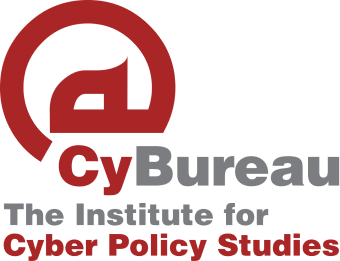Business as Usual
When the revolution in Egypt, which spread throughout the Arab world, was in full stride, it seemed as if something had changed in the Islamic world and that a new era was dawning. However, now it seems that the authorities are trying once again to disconnect the country’s citizens from the rest of the world.
Bad times are upon the internet in the Middle East and the Islamic world lately. A year ago, we called the protests “the Arab Spring”, hoping that the waves of popular dissent in the streets of the Middle East would bring more freedom of speech, both actual and virtual, to the people of the region. The successes that many virtual protests had on Facebook, even gave it the name “The Facebook Revolution”- the success of the masses in removing the Egyptian regime. The past few weeks have given us enough evidence from throughout the Middle East and the Islamic world to show that the warm breezes of spring have cooled down and that the governments in our region have returned to business-as-usual.
Iran has been working for some time on an attempt to create an internal internet web, that would disconnect the country from the World Wide Web, and thus allow it, as the government claims, to give its citizens cheaper web services. However, it would also raise the level of information security, through the use of the closed, government-run web, and create an online fortress, that could hardly be defined as an “internet”. From the existing information, it seems that the government intends to create a designated parallel internal alternative, that will be supervised and closed to the internet that we know, and that the citizens of the country will be able to connect to it only.
Google is a spy tool
The reports about the creation of a “clean internet” in the Islamic Republic have surfaced more than once in the past year. A few days ago, the Iranian Communications Minister reported that the venture is due to be launched this coming August. Actually, there are various reports that claim that the first stage of the venture will be launched on May 21st this year, probably along with designated e-mail and search engine services that will act as a “Kosher”, but well-supervised alternative to those in use in Iran and the rest of the world. A high ranking security official commented quite clearly on this subject when he claimed that “Google” was not a search engine, but rather a spy tool. Nevertheless, it was reported that access may be provided to foreign sites, depending on a government decision.
The Minister claimed: “Many governmental organizations already connect from their offices to the national internet and some schools use this network”. He added that the reason that the Iranian internet was not yet tangible, was the fact that it had not yet been presented to the public, a step which is due this coming August when the country’s internet providers are to be connected to the network. He estimated that the network would reach its final configuration within two to three years.
Meanwhile, it was reported that the authorities denied what they claimed was no more than an April-Fool’s prank, fabricated by Western propaganda, that the interview with the Minister of Communications had never even occurred.
Prank or not, Iran’s intentions, statements and actual steps prove that it is determinedly and consistently acting to constrict internet users’ freedom in the country and to supervise virtual traffic as much as possible, with the intention of creating a complete system that can be exported to other countries that wish to create a closed internal internet network.
Censorship of 1500 English words
One possible client for such a system could be Pakistan, which lately advertised a tender for the installment of a system for censoring the internet. The requirements for this system were that it would be able to block 50 million web pages in multiple languages, with a delay of no more than one thousandth of a second. internet traffic in Pakistan today is free, relative to other Islamic countries, but has limited access, of course, to pornographic websites. Even now, the 50 internet providers in the country are required to censor the internet. There have been attempts to limit all cellular traffic in the country: In November 2011, the local Communications Ministry ordered all internet providers in the country to block any text messages that contained any words in English, from a list of 1,500, which had been deemed offensive. This plan was shelved due to public protest. These general activities aimed at limiting communications in this country, may be due to the upcoming elections planned for the end of this year. It is quite possible that these steps contributed to Pakistan falling 14 places on an international index which examines aspects of information systems in 10 different parameters.
As happened with the decision to limit cellular traffic, so happened with this tender, and a general denial was issued before long, along with a demand to investigate those who had advertised the tender without proper consultation.
It may be that, yet again, the Pakistani government has retreated due to public pressure, as was demonstrated, among other things, in a petition signed by more than 18 thousand people, addressed to managers of security companies in the West, calling on them not to take part in a tender which would silence 20 million internet users in the country. However, the government has undoubtedly not had its last word, especially in light of its repeated attempts to limit the freedom of the media in the country.
Egypt as well has been tirelessly toiling to put systematic blanket limits on the internet. The Egyptian Communications Minster announced lately that the Egyptian government was working to completely block pornographic websites in the country. He announced the formation of a committee, which would be comprised of members of parliament, to lay down the foundations for blocking these sites, and according to his assessment, they number in the millions. The Parliament’s Communications and Traffic Committee had previously requested that the government block access to these sites in Egypt and also requested legislation of punishments to companies that allow access to forbidden websites.
The Egyptian government’s steps create a worsening in activities against the internet in the country, which have been going on for many years, and do not fit in with the many hopes for freedom of information and freedom of speech which were raised during “the Facebook Revolution”. It appears that the options of internet users in Egypt, as well as in other countries in the region, are slowly being reduced.
Was this the “Arab Spring”? It appears that the situation in the political sphere, as well, does not meet with the visions of the young people who took to the streets a year ago and made the “Facebook Revolution”. The Islamic factors have taken the reins of power, not only in Egypt, but in the other countries which saw the fall of their regimes in the past year.
The Iranian online model is a challenge to internet users in the country, as it is to all those who fear for the shape of the countries in the region in the future. This is because of the importance of the internet and social networks in creating information, passing it along, receiving it and creating direct communication between citizens of different countries, just like the recent Israeli Faceook initiative to bring people from Israel and from Iran together. These abilities are undoubtedly clear to the regimes in our region, when they attempt to restrict the internet within their countries and to strengthen supervision over its traffic.
These are bad times for the Middle East and the Islamic world. We appear to be having a “stormy winter”, at least in regard to online affairs, and the hopes for more freedom that were brought to us by the events of 2011 have been falsified for the time being.
This post is also available in:
עברית

